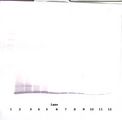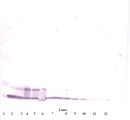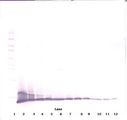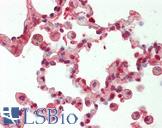Login
Registration enables users to use special features of this website, such as past
order histories, retained contact details for faster checkout, review submissions, and special promotions.
order histories, retained contact details for faster checkout, review submissions, and special promotions.
Forgot password?
Registration enables users to use special features of this website, such as past
order histories, retained contact details for faster checkout, review submissions, and special promotions.
order histories, retained contact details for faster checkout, review submissions, and special promotions.
Quick Order
Products
Antibodies
ELISA and Assay Kits
Research Areas
Infectious Disease
Resources
Purchasing
Reference Material
Contact Us
Locations
Orders Processing,
Shipping & Receiving,
Warehouse
2 Shaker Rd Suites
B001/B101
Shirley, MA 01464
Production Lab
Floor 6, Suite 620
20700 44th Avenue W
Lynnwood, WA 98036
Telephone Numbers
Tel: +1 (206) 374-1102
Fax: +1 (206) 577-4565
Contact Us
Additional Contact Details
Login
Registration enables users to use special features of this website, such as past
order histories, retained contact details for faster checkout, review submissions, and special promotions.
order histories, retained contact details for faster checkout, review submissions, and special promotions.
Forgot password?
Registration enables users to use special features of this website, such as past
order histories, retained contact details for faster checkout, review submissions, and special promotions.
order histories, retained contact details for faster checkout, review submissions, and special promotions.
Quick Order
| Catalog Number | Size | Price |
|---|---|---|
| LS-C139961-100 | 100 µg | $439 |
Monoclonal Mouse anti‑Human CXCL10 / IP‑10 Antibody (clone 6D4, IHC, IF, WB) LS‑C139961
Monoclonal Mouse anti‑Human CXCL10 / IP‑10 Antibody (clone 6D4, IHC, IF, WB) LS‑C139961
Note: This antibody replaces LS-C663049
Antibody:
CXCL10 / IP-10 Mouse anti-Human Monoclonal (6D4) Antibody
Application:
IHC, IHC-Fr, IF, WB, Flo
Reactivity:
Human
Format:
Unconjugated, Unmodified
Toll Free North America
 206-374-1102
206-374-1102
For Research Use Only
Overview
Antibody:
CXCL10 / IP-10 Mouse anti-Human Monoclonal (6D4) Antibody
Application:
IHC, IHC-Fr, IF, WB, Flo
Reactivity:
Human
Format:
Unconjugated, Unmodified
Specifications
Description
IP-10 antibody LS-C139961 is an unconjugated mouse monoclonal antibody to human IP-10 (CXCL10). Validated for Flow, IF, IHC and WB.
Target
Human CXCL10 / IP-10
Synonyms
CXCL10 | C-X-C motif chemokine 10 | Gamma-IP10 | IP-10 | Gamma IP10 | GIP-10 | Mob-1 | Small-inducible cytokine B10 | Crg-2 | IFI10 | INP10 | SCYB10
Host
Mouse
Reactivity
Human
(tested or 100% immunogen sequence identity)
Clonality
IgG2a
Monoclonal
Clone
6D4
Conjugations
Unconjugated
Purification
Purified
Modifications
Unmodified
Immunogen
Recombinant human IP-10.
Specificity
Human CXCL10
Applications
- IHC
- IHC - Frozen
- Immunofluorescence
- Western blot
- Flow Cytometry
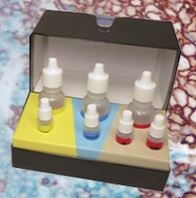
|
Performing IHC? See our complete line of Immunohistochemistry Reagents including antigen retrieval solutions, blocking agents
ABC Detection Kits and polymers, biotinylated secondary antibodies, substrates and more.
|
Usage
For immunohistochemistry, flow cytometry and Western blotting, dilutions to be used depend on detection system applied. It is recommended that users test the reagent and determine their own optimal dilutions. The typical starting working dilution is 1:50.
Presentation
0.2 µm filtered solution in PBS
Storage
Store at 4°C, stable for 1 year.
Restrictions
For research use only. Intended for use by laboratory professionals.
About CXCL10 / IP-10
Publications (0)
Customer Reviews (0)
Featured Products
Species:
Human
Applications:
IHC, IHC - Paraffin, Western blot, ELISA
Request SDS/MSDS
To request an SDS/MSDS form for this product, please contact our Technical Support department at:
Technical.Support@LSBio.com
Requested From: United States
Date Requested: 4/18/2024
Date Requested: 4/18/2024

